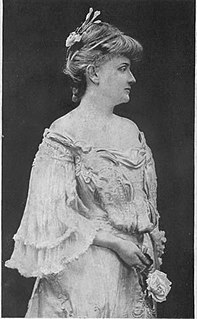A Quote by Oliver Goldsmith
I have visited many countries, and have been in cities without number, yet never did I enter a town which could not produce ten or twelve little great men; all fancying themselves known to the rest of the world, and complimenting each other upon their extensive reputation.
Related Quotes
The number of the fixed stars which observers have been able to see without artificial powers of sight up to this day can be counted. It is therefore decidedly a great feat to add to their number, and to set distinctly before the eyes other stars in myriads, which have never been seen before, and which surpass the old, previously known stars in number more than ten times.
There is such a difference between the pursuits of men in great cities that one part of the inhabitants lives to little other purpose than to wonder at the rest. Some have hopes and fears, wishes and aversions, which never enter into the thoughts of others, and inquiry is laboriously exerted to gain that which those who possess it are ready to throw away.
I've never been lonely. I've been in a room... I've felt suicidal, I've been depressed. I've felt awful ... awful beyond all , but I never felt that one other person could enter that room and cure what was bothering me...or that any number of people could enter that room. In other words, loneliness is something I've never been bothered with because I've always had this terrible itch for solitude.
Nothing has so exposed men of learning to contempt and ridicule as their ignorance of things which are known to all but themselves. Those who have been taught to consider the institutions of the schools as giving the last perfection to human abilities are surprised to see men wrinkled with study, yet wanting to be instructed in the minute circumstances of propriety, or the necessary form of daily transaction; and quickly shake off their reverence for modes of education which they find to produce no ability above the rest of mankind.
No, there is now no circumstance known in which it can be affirmed that microscopic beings came into the world without germs, without parents similar to themselves. Those who affirm it have been duped by illusions, by ill-conducted experiments, spoilt by errors that they either did not perceive or did not know how to avoid.
It is self-evident that no number of men, by conspiring, and calling themselves a government, can acquire any rights whatever over other men, or other men's property, which they had not before, as individuals. And whenever any number of men, calling themselves a government, do anything to another man, or to his property, which they had no right to do as individuals, they thereby declare themselves trespassers, robbers, or murderers, according to the nature of their acts.
As it often happens that the best men are but little known, and consequently cannot extend the usefulness of their examples a great way, the biographer is of great utility, as, by communicating such valuable patterns to the world, he may perhaps do a more extensive service to mankind than the person whose life originally afforded the pattern.
Did any great genius ever enter the world in the wake of commonplace pre-natal conditions? Was a maker of history ever born amidst the pleasant harmonies of a satisfied domesticity? Of a mother who was less than remarkable, although she may have escaped being great? Did a woman with no wildness in her blood ever inform a brain with electric fire? The students of history know that while many mothers of great men have been virtuous, none have been commonplace, and few have been happy.
What are works of art for? to educate, to be standards. To produce is of little use unless what we produce is known, is widely known, the wider known the better, for it is by being known that it works, it influences, it does its duty, it does good. We must try, then, to be known, aim at it, take means to it. And this without puffing in the process or pride in the success.
The last page of [Lincoln in the Bardo] - without giving too much away - involves somebody entering somebody else. Not in a sexual way. But it says one of the simplest things you could ever say, which is that we must try and be inside each other. We must have some kind of feeling for each other and enter into each other's experience.
She smiled. She knew she was dying. But it did not matter any longer. She had known something which no human words could ever tell and she knew it now. She had been awaiting it and she felt it, as if it had been, as if she had lived it. Life had been, if only because she had known it could be, and she felt it now as a hymn without sound, deep under the little whole that dripped red drops into the snow, deeper than that from which the red drops came. A moment or an eternity- did it matter? Life, undefeated, existed and could exist. She smiled, her last smile, to so much that had been possible.





































